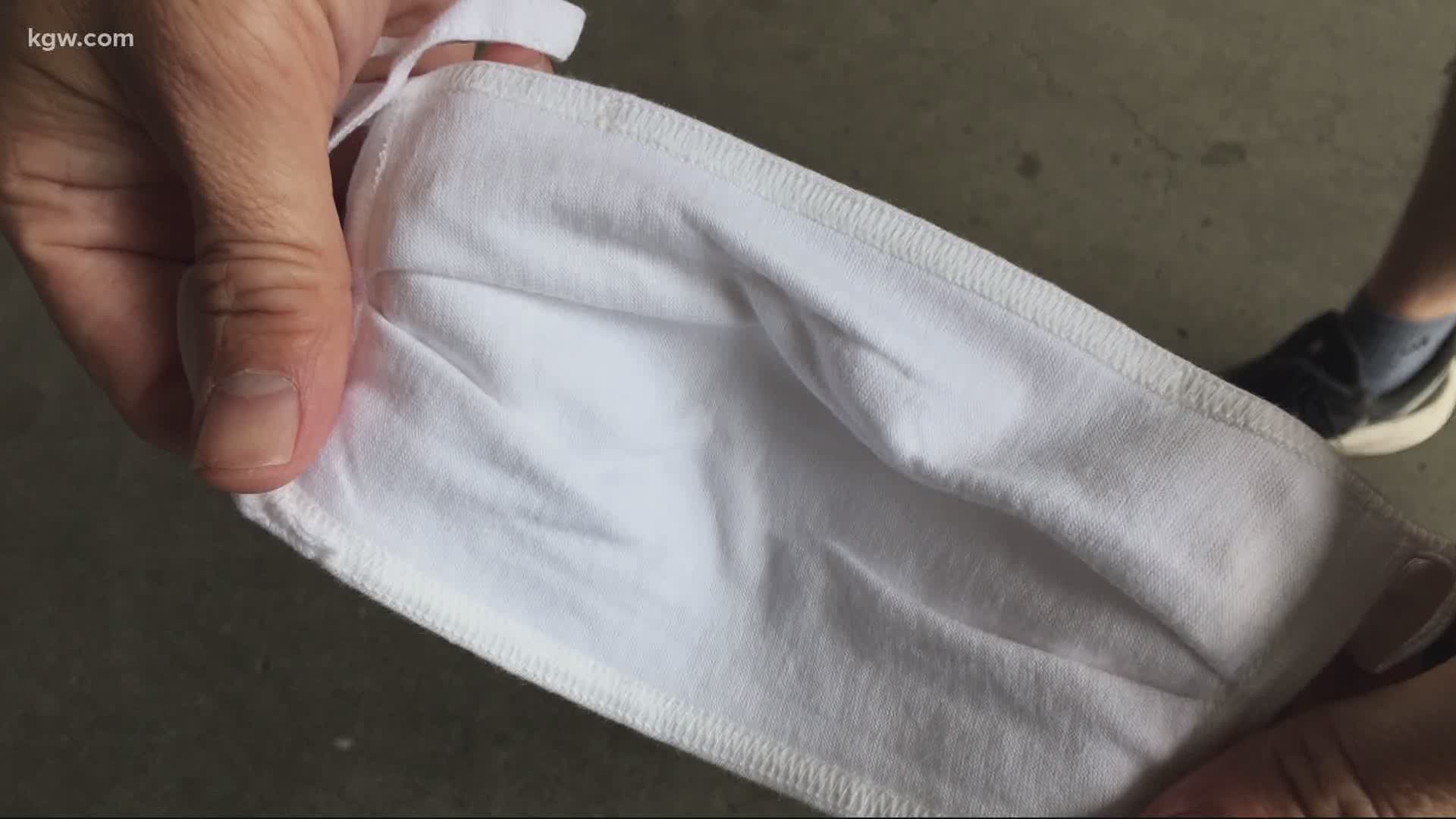PORTLAND, Ore. — When it comes to face masks, it's important to know which ones will keep people safe.
An expert on indoor air quality at Portland State University said some cloth masks just aren't that effective.
"In my opinion, we should have gone into world war mode and we should have been basically producing N-95 masks as if they were ammunition for war ... and we didn't do it," said Dr. Richard Corsi.
Since the pandemic began, the Portland State University researcher has been stressing the importance of wearing face masks.
The international expert on indoor air quality was shocked when health authorities did not advise people to wear the masks initially.
Now that they are, he wants to make sure people are wearing them correctly.
"It really depends on the material that's used for the mask and how well the mask fits you," he said.
That's because even the simple act of talking emits droplets. Some are large. Some are tiny.
Just by wearing a mask, people minimize the amount of droplets emitted, even those tiny ones.
"Depending on the material and how well the mask fits, it could be anywhere from 10 to 50%," he said.
And that could be enough to keep people from getting sick.
But the amount of protection the wearer gets also depends on what kind of mask they are wearing.
"If it's woven cloth, it's generally not going to be very good," Corsi said. "It should be a non-woven material."
Which means some of those homemade masks might not be as protective as some had hoped.
"Things like bandanas and scarves are not very effective at all at removing tiny particles," he said. "They'll still remove the big droplets that come out of someone's mouth, so they'll protect you from that, but not from the tiny particles."
It can be a challenge to get a face mask that's made with non-woven material, and a woven cloth face mask is better than no face mask, Corsi said. He said because woven cloth masks are the only option for so many people, that's why it's critical for everyone to still practice social distancing, avoid crowded bars and restaurants.
Dr. Corsi said there are exceptions to the non-woven rule. People might even be sleeping on one of them.
"It turns out certain kinds of pillow cases, especially the more expensive pillow cases, the 600-count pillow cases, have been proven to be pretty effective at removing tiny particles," he said.
Masks with a sleeve for a filter can also be effective. Just make sure the filter fits the mask correctly.
Corsi also said if a woven and unfiltered mask is all a person has, the more layers the better.
"Five layers of that material is certainly better than one or two layers," he said.
It's also important that people make sure the mask fits tightly to their face.
Here's a test:
Put on a pair of glasses and breath heavy. If the glasses fog up, the mask is not fitting correctly.
Still any mask is better than no mask.
That's because if no one wears a mask, the risk of spreading the COVID-19 virus is high. If half of the people wear masks, there's still a decent risk. Only if everyone wears a mask does that risk drop significantly.
"Studies that have been done so far have shown that if everybody wears a mask in an environment, then everybody's protected to levels of 50 to 75% reduction in contamination," Corsi said.
And that is enough to save lives.
"Wear a mask to protect yourself, yes," Corsi said, "But wear your mask to protect other people around you."

